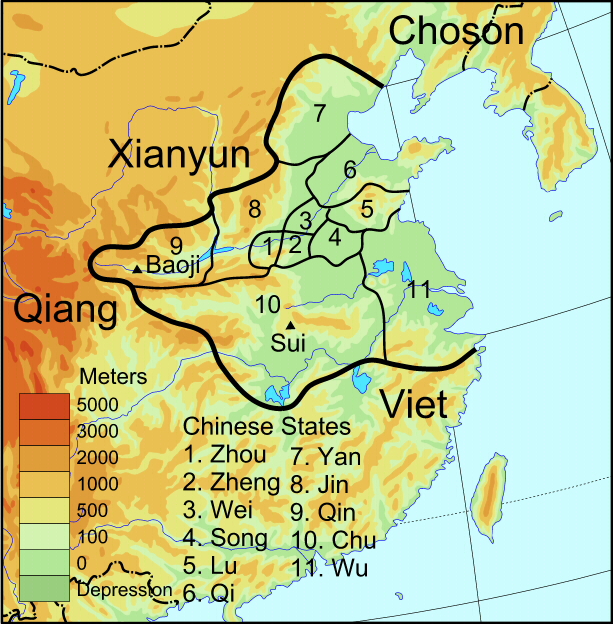
Keynotes 5
The Zhou dynasty is divided into two large periods, the Western Zhou (1045 -771 BCE) and the Eastern Zhou (770-221 BCE). In 771 BCE the Zhou moved their capital from the Chang'an (Xi'an) area further to the east to Luoyang after the king had been driven out of his capital by an uprising and the destruction of the capital by former vassals.
The Eastern Zhou saw the deterioration of unity among the feudal vassals and the emergence of separate states (from allegedly 1800 feudal units in the Western Zhou to ca. 140 states). As the Zhou dynasty disintegrated the new states contended for power in frequent warfare. The Eastern Zhou therefore is divided into the period of Spring and Autumn (Chunqiu) (770-4746/ 464BCE) with 44 states which were reduced to seven large and three small states fighting each other during the period of the Warring States (475/463-221 BCE).

Zhou states
The Birth of Chinese Philosophy
-
father – son
-
husband – wife
-
elder brother – younger brother
Outside the family:
-
ruler – subject
-
friend – friend
These fundamental relationships determine everybody’s
life and therefore deserve to be respected by everybody alike. They imply mutual
dependency: father, husband, elder brother, ruler, teacher and friend are obliged
to support their subordinates with care and benevolence. In return son, wife,
younger brother, subject, student, and friend have to demonstrate obedience
to their superiors.
Confucius who lost his father at the age
of three, was brought up by his mother and supportive
relatives. He gained a low ranking official position as a supervisor of a grainstorage. But soon he lost interest in this ‘job’ in the
state of Lu in
 Confucius
Confucius
His teachings were collected and written
down by his disciples (of which 72 are known to us) between 465 and 450 BCE
in The Analects (Lunyu).
He based his teachings on his knowledge of antiquity and explained that he did
not create a new teaching but transmitted the wisdom of the Zhou rulers, whom
he idealized as sage kings. Their style
of government could serve contemporary rulers as a valuable model. He was neither
a revolutionary nor very innovative.
- how one should behave to one another in the family, in public,
- how marriages and funerals had to be handled.
He discussed matters of politics and stressed the importance that the ruler
should act as a virtuous leader who has no need to rely on punishment in his
rule but remained unmoved and ‘objective’ in his judgment at all times.
2.
Mencius (370-290 BCE):
Educated by his mother, he is said to have been committed to learning from an
early age on. His teachings were based on the principle was that the nature
of man is good at birth and that this quality needs to be retained through learning.
His comments on the death penalty are famous.
When punishing a culprit the ruler should ask the people whether he deserves
to be punished with the death penalty. Only when the people agree, can the ruler
proceed.
3.
Xunzi (ca. 305-235
BCE/ 298-238 BCE): Contrary to Mencius, Xunzi was convinced that
the nature of man is bad and that only education and strict laws can regulate
people’s lives. Anything good in his behavior is therefore acquired though education.
Other than Confucius he thought that heaven is amoral and does not prescribe
any laws. The responsibility for one’s actions remain
with every individual.
A critic of Confucius was Mozi
(480?-400?). Though he accepted the superiority of the sage kings as taught
by Confucius, he stressed that family bonds outside of the nucleus-family were
too important in Confucius' concept. In order to avoid any kind of nepotism
and selfishness he developed the concept of ‘universal love’ (jian’ai), better translated as ‘impartial caring’ (Valerie Hansen).
While Confucians were preoccupied with the idea of harmonizing
society through political (and judicial) order and stressed the importance of
education Daoists taught that education inhibits a
life in harmony with nature. Acquired knowledge creates greed: the craving for
power and superiority.
1.
Laozi (4th
cent. BCE)
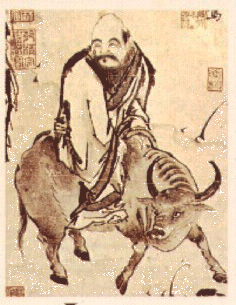 Laozi
Laozi
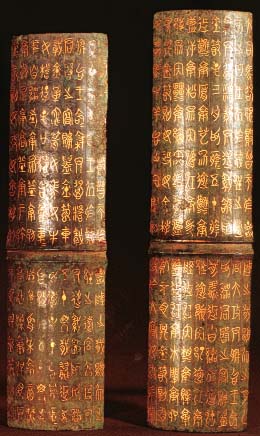
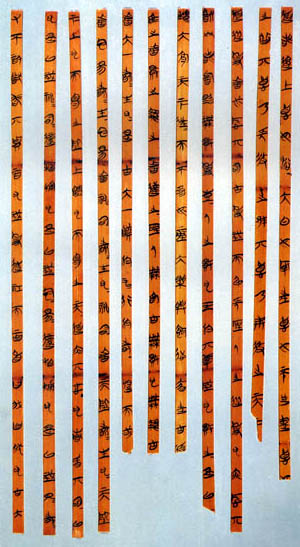
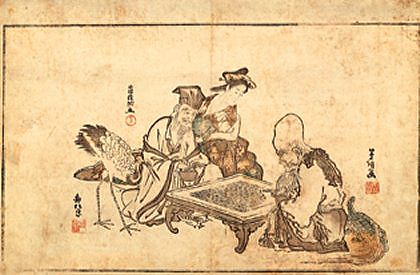
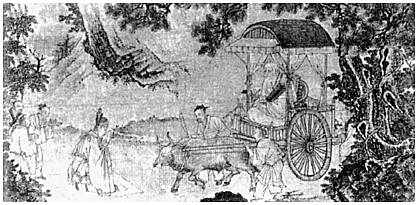
2.
Zhuangzi (d. ca. 329
BCE), from the state of Song which was incorporated by the state of Chu
Freedom from desire of any kind makes learning obsolete;
knowledge is accompanied by competition, competition by greed. Cultivation of
the mind should concentrate on individually achieving peace and tranquility
of the mind.

- both believed the leader of a good society had to
be virtuous and wise
- both believed in an absolute moral truth
- both believed in the possibility of a society living in peaceful harmony
- both stressed the duties of the individual towards family and community
- both distrusted merchants because they fostered greed
- both distrusted laws because they made people devious
- both did not believe in democratic self-government
Confucius thought that man is innately good. If all
relations between individuals within a community were harmonious, the entire
community could live in peace, from the smallest unit, the family, to the entire
state. Civilization needs humaneness, benevolence, and propriety (correct behavior)
in order to function. Correct behavior according to etiquette is the way to
express or convey attitudes. Education is the way to acquire wisdom and become
a gentleman. Dignity will create respect, kindness and benevolence will create
loyalty. Only civility can convince the people to follow a leader, human relationships
(ruler - minister, father - son, husband - wife, older brother - younger brother,
friend -friend) are more important than laws.
Confucius was educated in all disciplines expected from a nobleman: ritual,
music, archery, charioteering, arithmetic, and calligraphy. With the foundation
of this experience he emphasized self-cultivation through learning from the
past and gaining knowledge through the ‘investigation of things’.
Both would lead to moral order.
Plato was less trustful with regard to the innate qualities of human nature. He believed that people are easy to deceive by tyrants and greed and therefore need to be controlled. Like Confucius, he grew up during unruly times of war. In the Peloponnesian War, Athenians replaced democratic leadership through an oligarchy, the Thirty Tyrants. Democratic forces overthrew this government after Athens lost the war against Sparta. Just like Confucius the experience of changing governments and war was the impulse for Plato to search for an ideal, good government. Like Confucius who traveled while trying to find a ruler who would accept his teachings and put them into practice, Plato traveled and taught as a tutor at different places. He went to Egypt, Italy, and Sicily. Like Confucius’ teachings, Plato’s ideas are written in the form of philosophical dialogues. Plato was convinced that a harmonious society could only be created when the leaders of government with their philosopher-king at the top, had gained insight into ultimate Truth through their exceptional education, followed rational principles to rule the state and controlled or guarded the military as well as the general population that is engaged in production.
Confucius and Plato, both believed that education is the essential tool to create the ideal society. While Confucius thought everybody needs education, Plato stressed education for the class of leaders.
(Reference: Ken Wolf, Personalities and Problems. Interpretive Essays in
World Civilization. New York: McGraw-Hill 2005).
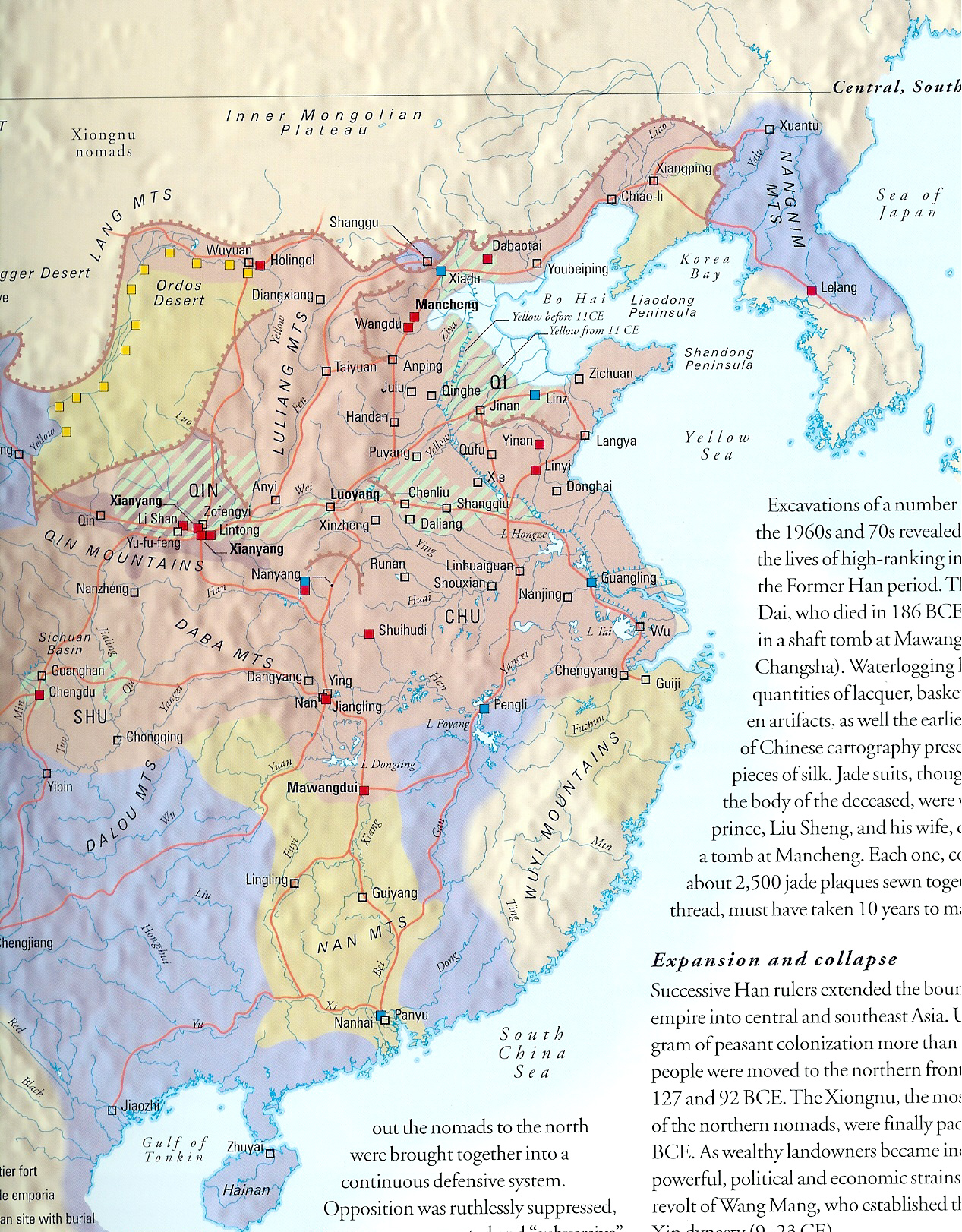
The first empires of China Qin (brown & yellow) and Han (blue)